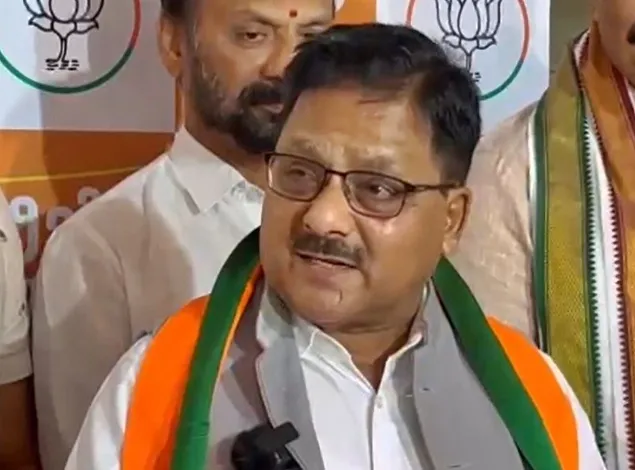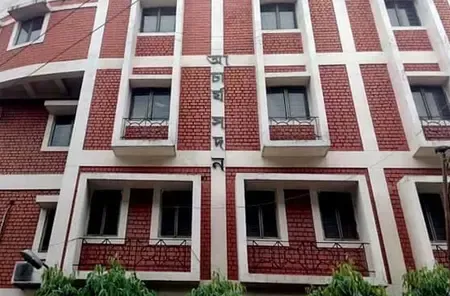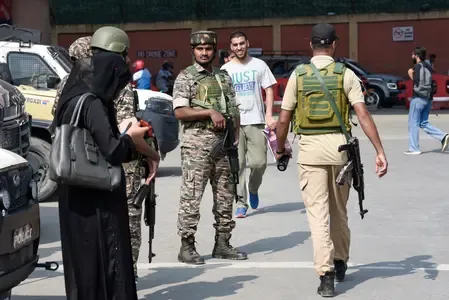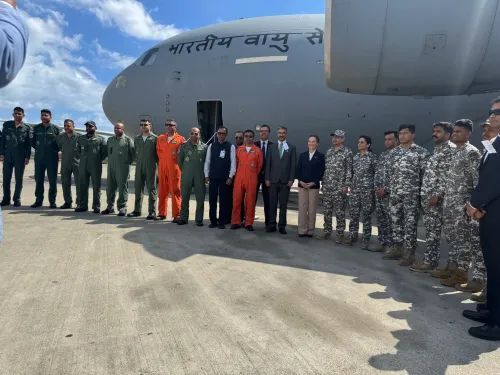Why was the Indus Waters Treaty suspended in India’s long-term interests?

Synopsis
Key Takeaways
- Indus Waters Treaty suspended for national interests.
- Criticism of treaty terms favoring Pakistan.
- Emphasis on national security and terrorism.
- Operation Sindoor highlighted as crucial.
- BJP's commitment to India's sovereignty.
Bengaluru, May 15 (NationPress) BJP National General Secretary and Rajya Sabha Member Radha Mohan Das Agarwal stated on Thursday that the Indus Waters Treaty has been suspended, considering the long-term interests of the nation.
While addressing reporters in Bengaluru, Agarwal, who also oversees the Karnataka BJP, mentioned, "The Sindhu Water Treaty was detrimental to India. You may be astonished to learn that the 1960 agreement granted Pakistan the authority to utilize 90 percent of the water."
"It is incomprehensible how an international pact allowed India to relinquish its water resources to Pakistan, a country that lacked the financial means to fully utilize these resources. Back in 1960, Prime Minister Jawaharlal Nehru even provided Rs 83 crore of India's scarce revenue to Pakistan for canal construction during a significant economic crisis," he remarked.
"Prime Minister Narendra Modi has made it evident that blood and water cannot coexist. We will reassess our stance when Pakistan demonstrates genuine intent against terrorism," the BJP MP added.
Regarding Operation Sindoor, he expressed, "Following the tragic incident on April 22, where 26 individuals lost their lives, including two from Karnataka, Manjunath Rao and Bharat Bhushan, I extend my heartfelt condolences to their families."
"We take pride that under the leadership of Prime Minister Modi, the Indian armed forces have demonstrated the utmost restraint while adhering to the rules of war, effectively targeting the operational bases of the terrorist organizations responsible for these attacks. The army successfully dismantled airbases that had provided cover for these terrorists," he stated.
He further noted, "Throughout the entire operation, not a single Indian soldier suffered casualties, and no Indian Army equipment was compromised. The Indian Army remained within the limits of the Line of Control (LoC), while successfully demolishing terrorist camps situated in Pakistan-occupied Kashmir (PoK) and Pakistan. We also took out the airbases used for launching drones and aircraft aimed at inflicting harm on the Indian side."
He mentioned that BJP workers, alongside enthusiastic citizens, have initiated the Tiranga Yatra to show appreciation for the Indian Army.
When queried about US President Donald Trump's assertion of aiding in de-escalating tensions between India and Pakistan, Agarwal commented, "Only Trump knows his contributions. It’s akin to a few children disembarking from a train and pushing it; once it moves, they claim responsibility. Trump's endeavors are comparable. The BJP opposes any third-party mediation in matters concerning India and Pakistan."
"After the ceasefire, the Prime Minister noted that Pakistan's Director General of Military Operations (DGMO) reached out to his Indian counterpart. When the initial call went unanswered, a second call was made, filled with urgency to cease the attacks," Agarwal emphasized.
"Operation Sindoor was merely a phase; our struggle against terrorism will persist,” he concluded.









